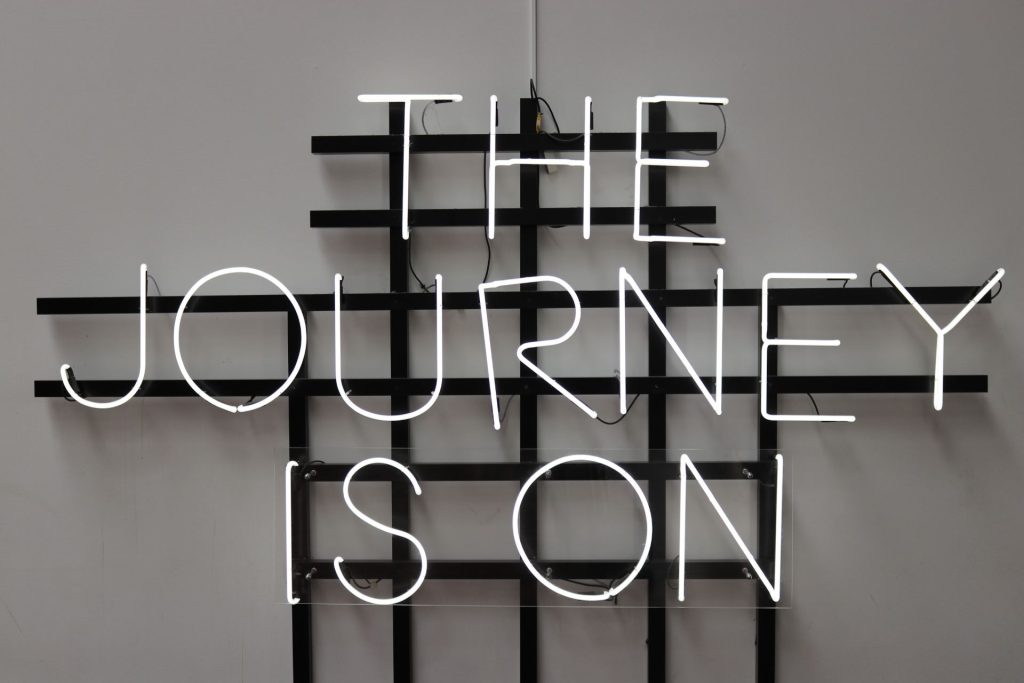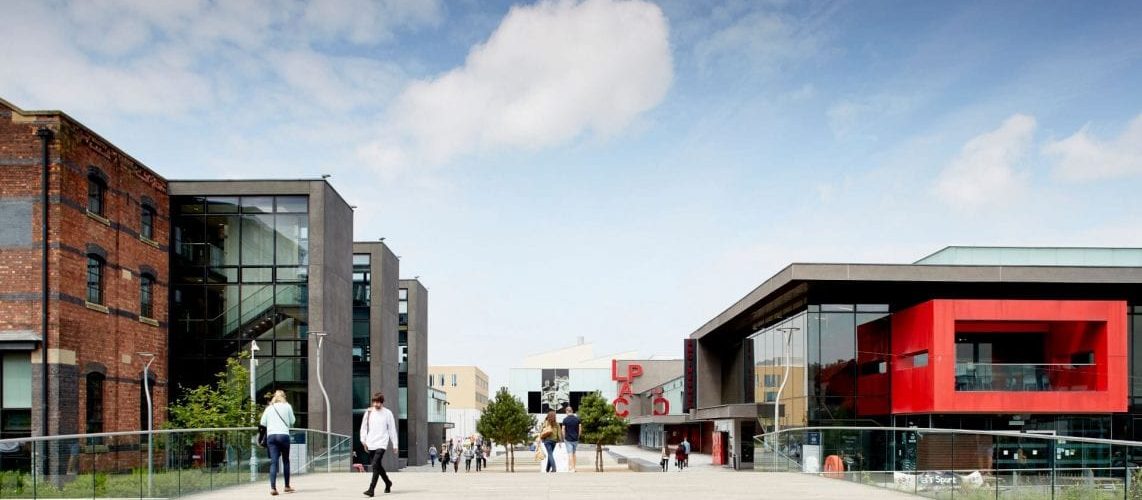The Professional Practice Fellowship, sponsored by Research Libraries UK and the AHRC, is a grant programme designed to give librarians the time and capacity to carry out significant research projects aligned with their professional interests. My name is Hope Williard and I am one of the fellows for 2022-2023. This is the third in a series of posts about my project, The Lifelong Researcher: Supporting Doctoral Students’ Development of Digital Literacies.
How, when, and where do PhD students in history learn to navigate and use digital resources and tools for their research? In my Professional Practice Fellowship project, one of the ways I am attempting to answer this question is by conducting semi-structured interviews with researchers, supervisors, and librarians about their digital experiences. As this research involves working with human subjects, I was required to do my first ever ethics application. This post will reflect on that experience and offer advice to other librarian-researchers who are unfamiliar with the world of research ethics.
MY Learning Experiences
To a newcomer, research ethics is incredibly intimidating: guidance give by my university emphasises that its purpose is to promote high quality research, minimise risks of harm, and prevent misconduct. Which makes it seem like the consequences of Getting It Wrong are severe for the researcher and their institution. The application itself makes this responsibility seem much more manageable: my application was done online, and I could save and return to it whenever I needed to. Not all sections of the application were relevant to my project (for example, I am not doing research outside of the UK), which also helped cut it down to size.
Another thing I did that was incredibly helpful for making the application process less intimidating: I talked to people about it! A few weeks before I began my application, I reached out to colleagues for support and arranged two conversations. One was with an academic colleague who had recently done an ethics application, to ask questions about their experiences of the process. The other was with a member of my university’s research ethics team, to discuss the components of my project and how these would shape my ethics application. Both conversations were incredibly useful, bringing up issues that I had not previously considered.
Using the application’s own section divisions as a guide, I worked on it in pieces over the course of several weeks. I spent several weeks writing a lay summary of my project, an overview of my research questions, and a detailed explanation of my methodology and why I had chosen it. This was another place where feelings of being an imposter hit hard, and I worried about reviewers’ responses to my plans. Fortunately, I could pull text and ideas from my fellowship application materials to help. I also firmly reminded myself that if my research was worthy of being funded, it was going to be worthy of ethical approval too!
One thing I hadn’t fully anticipated was that the ethics application would require me to prepare all materials participant-facing material. My application included template of my recruitment message to participants, posters advertising the project, information sheets for participants, consent forms, and interview questions. Multiply all of these categories by three: one version for supervisors, another for librarians, and a third for PGRs. Devising the interview questions, in particular, took longer than expected, and I was very grateful for my fellowship mentor’s feedback on these.
Overall, the application process took longer than I expected it would. Here is what it looked like.

My Ethics APPlication TimeLIne
Late July-Early August 2022: Preliminary Explorations
Before I even formally started my fellowship, I arranged meetings with an academic colleague and a member of my university’s research support team. Both warned me that I should allow plenty of time for the application process!
August 2022-September 2022: Writing the Application and Interview Questions
I ended up spending about seven weeks drafting the application and participant materials. At one point, I paused work on the application entirely, waiting for clarification from my university’s research team regarding whether one section of the application (on ‘internet research’) was relevant to my work.
Looking back on this process, I probably could have drafted my application in a shorter amount of time. I had a great deal of raw material from my application, which I edited and rewrote out of worry that they wouldn’t make sense to non-expert reviewers. I would spend less time doing this in the future, but would still allow at least three to five weeks for drafting an ethics application for a large project.
29 September 2022: Application Submitted
My goal for submitting the application had been mid-September–when I did not meet this, I revised to wanting to get in by the end of the month. At my university, this meant that I was submitted my application at the end of Welcome Week, and I worried that this would mean delays to it being approved.
16-17 October 2022: Application Returned for Clarification
As it happened, Welcome Week didn’t slow things down, but there were delays which were entirely my fault. In uploading copies of materials for my three groups of participants, I accidentally uploaded the same form twice, so the panel had to send the application back for clarification.
24 October 2022: Ethical Approval Granted
My online records tell me that I logged in and created my application form on 9 August and it was formally approved on 24 October–so overall, the process took 52 working days, or about two and a half months. That’s a long time and I feel a bit embarrassed about it. I made good progress on other parts of my research during that time, but my fellowship grant only lasts for eight months, so that looks like a lot.
However, as a conversations with members of my fellowship cohort reminded me, the calendar doesn’t tell the full story. The Professional Practice Fellowship ‘buys out’ a certain amount of time for fellow-librarians to work on our research projects, and our regular duties fit into the remainder of the working week. In my case, this means that I spend roughly 1.5 days per week as a researcher and 3.5 days as an academic subject librarian. So if I calculate the time I spent on the project as a research days, it actually works out as: 10 weeks from application start to approval x 1.5 days of research time = 15 days of work. However, three out of those ten weeks were spent waiting for a decision on my application, which brings the total down to about 10.5 days of work. And it goes down further: I only ever spent part of a research days on the application, so overall, the amount of time I spent my application was probably about 5-6 days of work, spread out across 7 weeks.
Less than a day a week for seven weeks sounds much more doable than two and a half months of work, doesn’t it?
Recommendations
One of the aims of the Professional Practice Fellowship programme is to make space for librarians in research and raise awareness of librarians as researchers. Even with that support behind me, I still struggled with feelings of imposterism. Without any pretensions to expertise, here are four recommendations based on what I learned from my first application experience.
Ask others at your institution about their experiences and advice: The regulations and guidelines for good practice in research are the same across the UK, but they don’t always translate easily (especially for newcomers) into the specifics of what you need to do for your particular project. Talking to an administrator who oversees the ethics application process, and/or to someone who has recently been through it, might be very helpful in helping you apply the guidelines and requirements of your university to your specific project.
I didn’t do this, but you might also investigate researcher training workshops–universities often offer workshops on research ethics to new doctoral students or academic staff. These sorts of workshops might not be offered at quieter times of the academic year, such as between semesters but workshop facilitators might be willing to share their slides or meet with you for a brief conversation. Ask.
Use what you have: Application materials, blog posts, emails to supervisors or colleagues about your project, and project notes are all sources of material for the text of your application. You might need to reshape or redraft them slightly but chances are you need to do less than you think you do.
Mind your application attachments: Double-check that you have uploaded everything that needs to be attached to your application before you hit submit.
Allow plenty of time: The review process may very possibly take as long as the process of putting together the application itself. If you can, try to begin your ethics application before your official project start date. Writing and submitting it beforehand would be ideal but you might not have time to do that. As the timeline above makes clear, ethics applications involve substantial waiting time, so it helps to plan to be working on another part of your project while you wait for your ethics application to be approved.
Finally…
I hope this behind the scenes look at a first-time ethics application was helpful for other librarian-researchers who are new to this world. I found it to be a long process but very much a doable one.
Image credit: Clemens van Lay, The Journey is On via Unsplash
